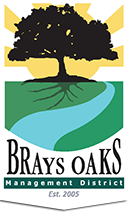 Kale and turnips are among a variety of vegetables making a difference in the lives of 12 refugees from the African Congo who are now living in Southwest Houston. “The plan is to help refugees who were farmers in their home country to develop small farming businesses in Houston,” said Teresa O’Donnell, executive director of the non-profit organization, Plant It Forward Farms. It’s a concept that arose when her employer, a software company, started looking for a way to give back to the community, she added.
Kale and turnips are among a variety of vegetables making a difference in the lives of 12 refugees from the African Congo who are now living in Southwest Houston. “The plan is to help refugees who were farmers in their home country to develop small farming businesses in Houston,” said Teresa O’Donnell, executive director of the non-profit organization, Plant It Forward Farms. It’s a concept that arose when her employer, a software company, started looking for a way to give back to the community, she added.
On Saturday, July 14, about 40 volunteers showed up to help build a model training farm on one of three acres leased from the Braeswood Assembly of God Church near the corner of Willowbend and Fondren. In the heat of an early morning, workers laid out rows of cardboard framed with cinder blocks and filled in the raised beds with organic soil. In the aisles between, they laid a mulch-covered walkway.
This fall, when the training farm is bearing leafy greens and root vegetables, all volunteers will receive a pound of free produce in exchange for their willingness to get a little dirty in the July sun. Ray Sher, farm manager, says the yield will include endive, collards, mustard greens, lettuce, beets, carrots, radishes, broccoli, cauliflower, bok choi and two kinds of peas––all of which will end up for sale in local farmers’ markets. No chemicals will ever touch any of it, O’Donnell said.
Plant It Forward’s website, www.Plant-it-Forward.org, not only has more information now, but will soon feature veggie-based recipes as well.
To be considered, refugees go through an interview process and nine months of training to become a certified Plant It Forward farmer and have the opportunity to cultivate a small urban farm like this one.






